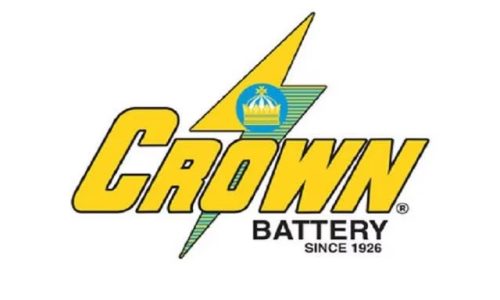Introduction
Navigating the turbulent teenage years can be challenging for both teens and their families. When everyday issues escalate into more serious problems, finding the right kind of support becomes crucial. Residential treatment in Phoenix offers a comprehensive solution for teens struggling with mental health issues. But how do you know when it’s time to seek such intensive care? Here are the top 10 signs that your teen might need residential treatment in Phoenix.
-
Persistent Mood Swings
Understanding Mood Swings
It’s normal for teens to experience mood swings due to hormonal changes and the stress of growing up. However, persistent and severe mood swings can be indicative of underlying mental health issues, such as bipolar disorder.
When Mood Swings Signal a Problem
If your teen’s mood swings are affecting their daily life and relationships, it may be a sign of a more serious condition. In such cases, residential treatment centers in Phoenix provide a structured environment where they can receive specialized care and support.
-
Struggles with Substance Abuse
Signs of Substance Abuse
Substance abuse is a serious issue that can have profound effects on a teen’s development and well-being. Signs include changes in behavior, secretive actions, and physical symptoms like red eyes or unusual smells.
Why Residential Treatment is Necessary
Residential treatment for teens offers a controlled setting for teens to overcome substance abuse issues. Programs like those at Avery’s House provide detoxification, therapy, and a supportive community to help them recover and rebuild their lives.
-
Decline in Academic Performance
Academic Issues as a Red Flag
A sudden drop in grades or a lack of interest in school can signal mental health problems. Academic struggles often reflect deeper issues like depression or anxiety.
Connecting Performance with Mental Health
Residential treatment centers offer educational support alongside mental health care. Teens can receive tutoring and counseling that address both their academic and emotional needs, helping them get back on track.
-
Self-Harm or Suicidal Thoughts
Recognizing the Signs
Self-harm and suicidal thoughts are severe indicators that a teen is struggling with their mental health. Look for physical signs like cuts or burns, or listen for verbal cues about self-harm or suicide.
The Urgency of Professional Help
Immediate and intensive help is necessary in these cases. Residential treatment centers provide 24/7 care and access to mental health professionals who can offer life-saving interventions and support.
-
Severe Anxiety or Panic Attacks
Understanding Anxiety Disorders
Severe anxiety or frequent panic attacks can be overwhelming and debilitating. Symptoms include rapid heartbeat, shortness of breath, and persistent worry.
Why Specialized Care is Essential
Residential treatment offers specialized therapies like Cognitive Behavioral Therapy (CBT) and Dialectical Behavioral Therapy (DBT), which are effective in managing anxiety and panic disorders.
-
Social Withdrawal and Isolation
Social Signs to Watch For
If your teen is withdrawing from friends and family, or isolating themselves in their room, it could be a sign of depression or other mental health issues.
Impact on Mental Health
Isolation can worsen mental health conditions, making residential treatment a crucial step. In a therapeutic environment, teens can re-engage socially and develop healthier relationships.
-
Behavioral Issues at Home or School
Types of Behavioral Issues
Behavioral issues might include aggressive outbursts, defiance, or significant changes in behavior. These can be signs of underlying mental health or emotional problems.
Role of Residential Treatment
A structured residential environment helps address behavioral issues through therapy and behavior management strategies, offering teens a path to improved conduct and coping skills.
-
Difficulty Managing Daily Responsibilities
Indicators of Poor Management
Teens struggling with managing daily tasks, such as chores, homework, or personal hygiene, may be experiencing mental health challenges. This could stem from depression, anxiety, or other conditions.
Benefits of a Structured Environment
Residential treatment provides a structured daily routine, helping teens develop the skills and habits necessary for managing responsibilities and building independence.
-
Trauma or PTSD Symptoms
Recognizing Trauma-Induced Behaviors
Traumatic experiences can lead to Post-Traumatic Stress Disorder (PTSD) and manifest as nightmares, flashbacks, or severe anxiety. Recognizing these symptoms is crucial for timely intervention.
Importance of Trauma-Informed Care
Residential treatment centers like Avery’s House offer trauma-informed care, addressing the specific needs of teens with PTSD through specialized therapies and supportive care.
-
Unexplained Physical Complaints
Physical Symptoms Linked to Mental Health
Physical complaints such as chronic headaches, stomachaches, or unexplained pains can sometimes be linked to emotional or psychological stress.
Addressing Physical Complaints through Treatment
In Phoenix residential treatment for teens, teens receive comprehensive care that addresses both physical and mental health issues, helping them achieve overall well-being.
Conclusion
Determining whether your teen needs residential treatment can be challenging, but recognizing these signs is the first step toward getting them the help they need. Phoenix offers a range of specialized residential treatment centers, such as Avery’s House, that provide safe and supportive environments for teens to heal and thrive. If you observe any of these signs in your teen, it might be time to explore residential treatment options in Phoenix to ensure they receive the comprehensive care necessary for their recovery.


